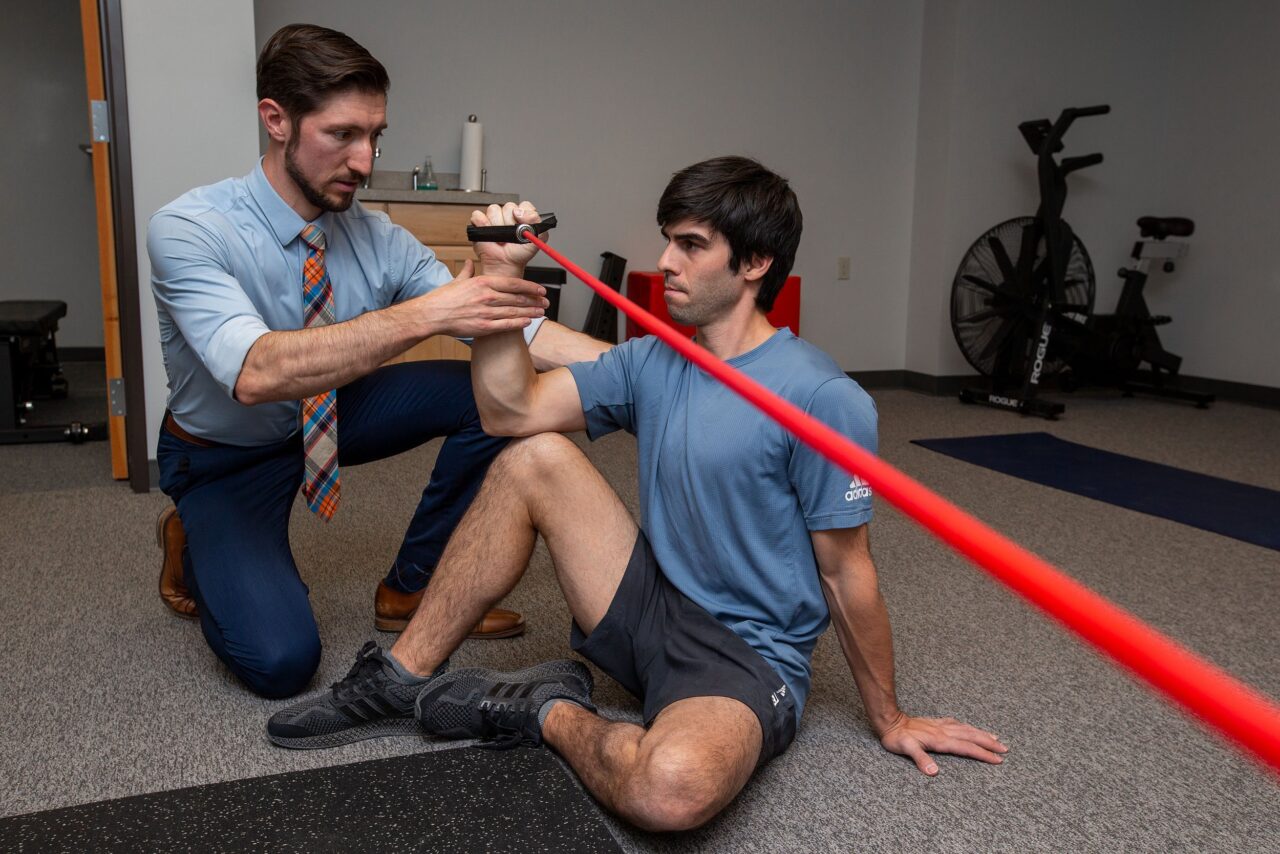Lateral elbow pain (aka lateral epicondylalgia, aka tennis elbow) is a very common condition experienced by rock climbers. The most common cause of lateral elbow pain is chronic degeneration of the tendons that attach at the lateral epicondyle of the elbow. These structures become painful with the repetitive stress of climbing, particularly with crimping, pinching, gaston, and compression movements. You can learn more about lateral elbow pain here.
According to the evidence there are several treatment options that are effective for treating lateral elbow pain in rock climbers. These include manual mobilization, dry needling, massage, and corrective exercises. The treatment with the best evidence to support it is a progressive loading program for the tendons causing the pain which, when done correctly, will stimulate a healing response to the tendon over time.
Many practitioners advocate for eccentric exercises where you use assistance to raise the weight upward, then take away the assistance and lower the weight in a controlled manner. This technique maximizes the eccentric phase of the exercise and eliminates the concentric (raising) phase of the exercise. But are eccentric exercises more effective that exercises that use the concentric and eccentric phases?
The evidence is moving away from “eccentric only” exercises for treating elbow pain. Previous studies showed that eccentric only exercises were more effective but a recent review by Coombes and colleagues looked at dozens of articles and their conclusion was that eccentrics alone were not superior to concentric/eccentric exercises for treating elbow pain.
Mend Recommendation: use “eccentric only” exercises only if the concentric phase of the exercise is painful. If you can successfully complete the reverse wrist curl exercise without causing pain during the exercise, then perform both the concentric and eccentric phases of the reverse wrist curl to treat lateral elbow pain.
If you’re a rock climber experiencing knee pain, schedule an appointment with a rock climbing specialist at Mend. We have locations in Boulder and Lafayette, Colorado. Many physicians, surgeons, and physical therapists do not understand the sport of rock climbing and may give incorrect or ill-advised advice on whether or not to return to climbing. The rock climbing specialists and Mend understand the sport and know when and how to safely return to rock climbing.

